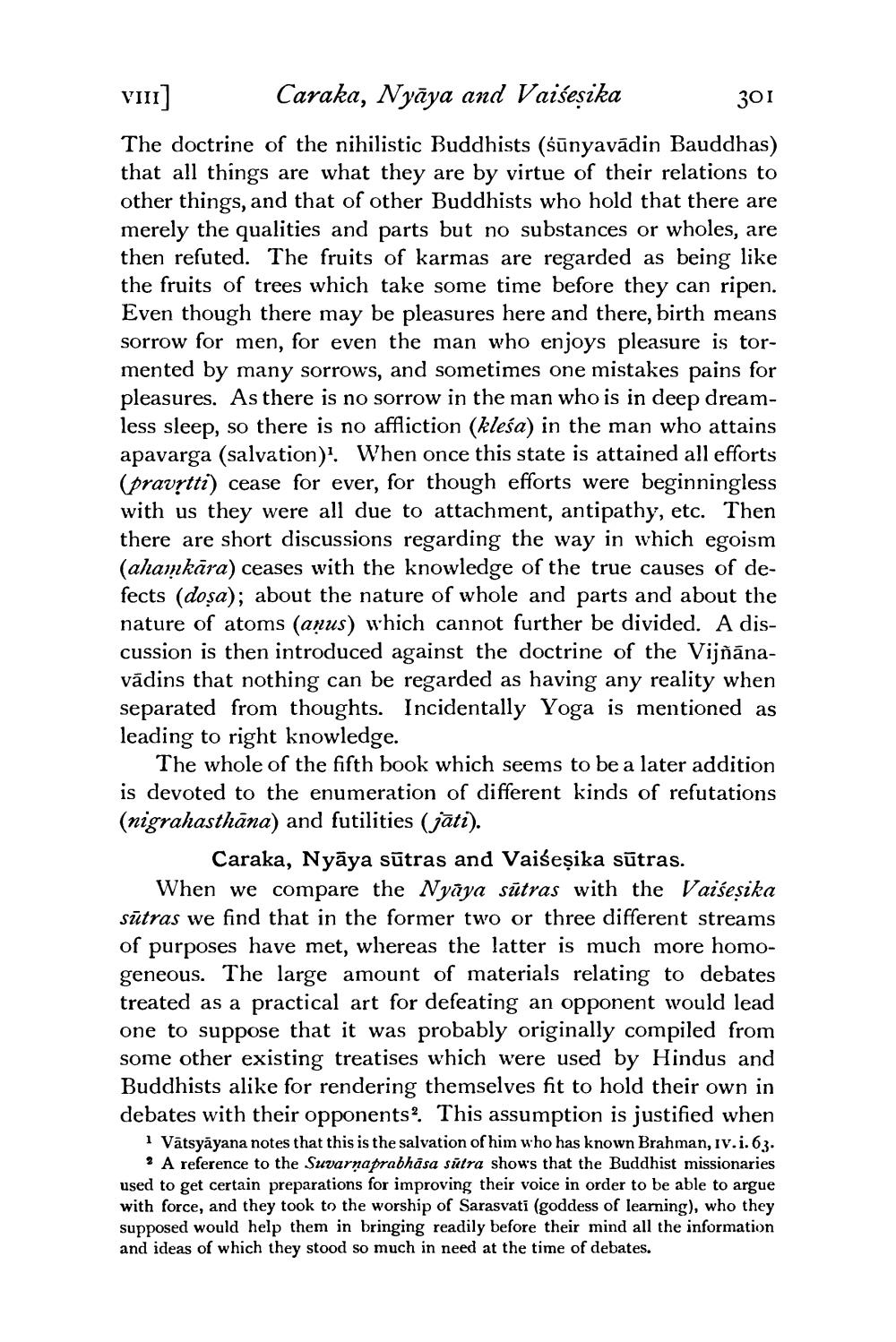________________
VIII]
Caraka, Nyāya and Vaiseșika
301
The doctrine of the nihilistic Buddhists (sūnyavādin Bauddhas) that all things are what they are by virtue of their relations to other things, and that of other Buddhists who hold that there are merely the qualities and parts but no substances or wholes, are then refuted. The fruits of karmas are regarded as being like the fruits of trees which take some time before they can ripen. Even though there may be pleasures here and there, birth means sorrow for men, for even the man who enjoys pleasure is tormented by many sorrows, and sometimes one mistakes pains for pleasures. As there is no sorrow in the man who is in deep dreamless sleep, so there is no affliction (klesa) in the man who attains apavarga (salvation)". When once this state is attained all efforts (pravrtti) cease for ever, for though efforts were beginningless with us they were all due to attachment, antipathy, etc. Then there are short discussions regarding the way in which egoism (ahamkāra) ceases with the knowledge of the true causes of defects (dosa); about the nature of whole and parts and about the nature of atoms (aņus) which cannot further be divided. A discussion is then introduced against the doctrine of the Vijñānavādins that nothing can be regarded as having any reality when separated from thoughts. Incidentally Yoga is mentioned as leading to right knowledge.
The whole of the fifth book which seems to be a later addition is devoted to the enumeration of different kinds of refutations (nigrahasthāna) and futilities (jāti).
Caraka, Nyāya sūtras and Vaiseșika sūtras. When we compare the Nyāya sūtras with the Vaiseșika sūtras we find that in the former two or three different streams of purposes have met, whereas the latter is much more homogeneous. The large amount of materials relating to debates treated as a practical art for defeating an opponent would lead one to suppose that it was probably originally compiled from some other existing treatises which were used by Hindus and Buddhists alike for rendering themselves fit to hold their own in debates with their opponents. This assumption is justified when
1 Vātsyāyana notes that this is the salvation of him who has known Brahman, iv.i. 63.
? A reference to the Suvarnaprabhāsa sútra shows that the Buddhist missionaries used to get certain preparations for improving their voice in order to be able to argue with force, and they took to the worship of Sarasvati (goddess of learning), who they supposed would help them in bringing readily before their mind all the information and ideas of which they stood so much in need at the time of debates.




